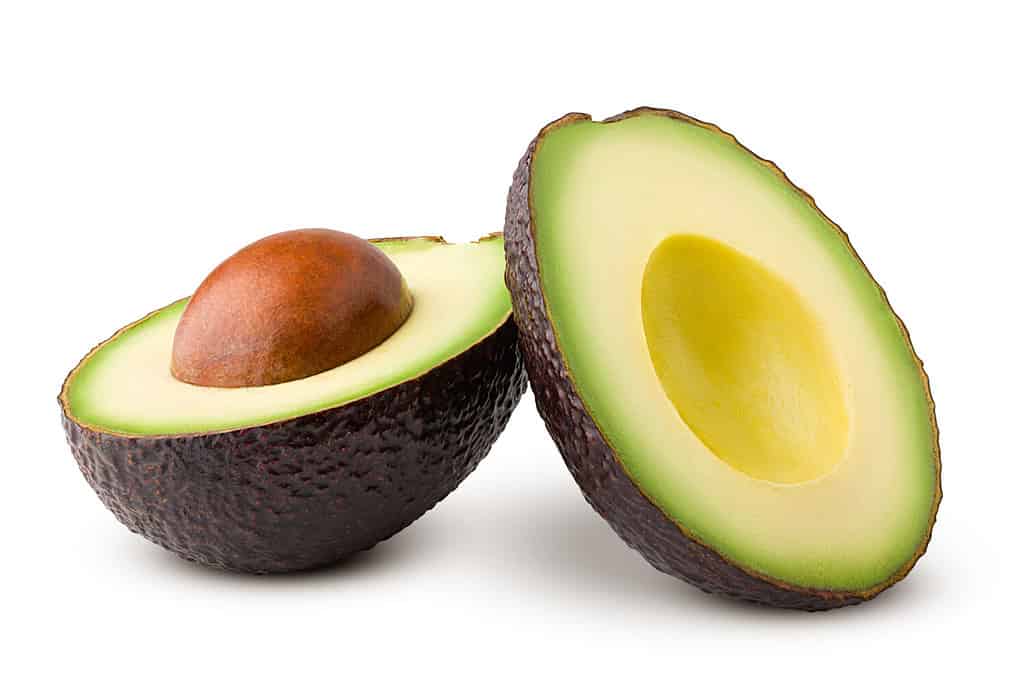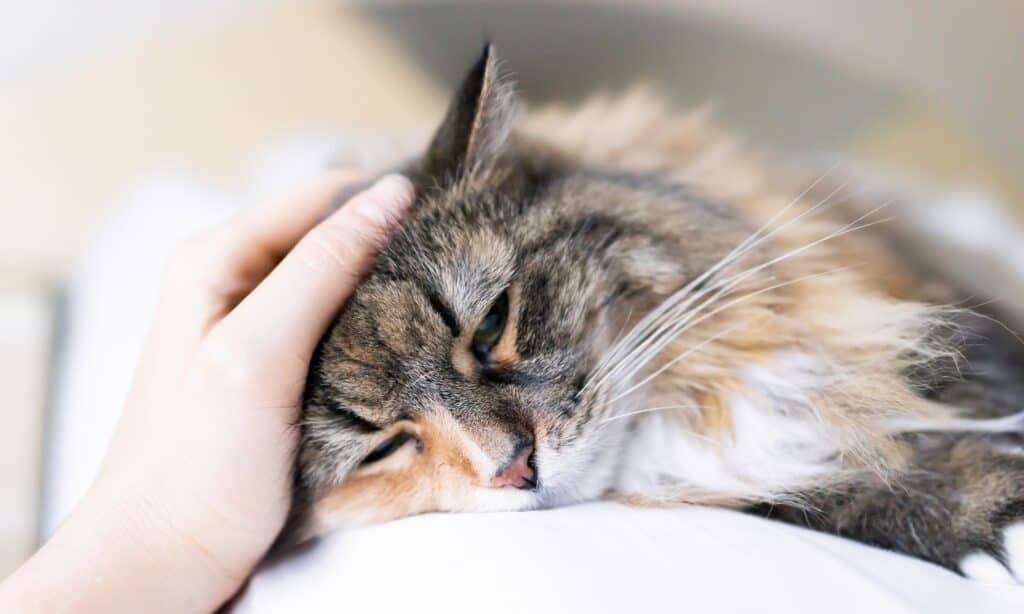Cats are beautiful creatures and common, adored household pets to many. When cultivating a warm, comforting environment for your cat to call home, you might think of ways to spoil your furry loved one with good food. Many cat owners will even cook homemade meals for their cats rather than purchasing regular cat food.
While some of our food is safe for pets to consume, others can be toxic. For example, you’ve likely heard that chocolate is a dangerous treat that cats (and many other animals) must avoid. But what about avocados?
Many people wonder whether this delicious green fruit is safe for their pets. In this article, we’ll discuss if cats can eat avocados and — if not — why they should avoid the beloved household ingredient.
Can Cats Eat Avocado?
Avocado is mildly toxic to cats and can cause gastrointestinal (GI) distress. In fact, avocados can actually cause pancreatitis in both cats and dogs. This is because the green fruit contains persin, an oil-soluble fungicide that’s not toxic to humans but is to many animals and pets.
While a small taste of avocado likely won’t kill your cat, the lethal amount for our furry friends is unknown, making the risk simply not worth it. At the very least, there’s a good chance your cat will feel ill after feasting on the green fruit, so it’s best they avoid it at all costs.
What Parts of Avocado Are Toxic to Cats?
Persin, which is the toxin found in avocados, is mostly contained in the fruit’s skin, leaves, and pit. However, it can also be found (in smaller, less concentrated amounts) in the avocado’s flesh. The more persin a cat consumes, the higher the risk of health concerns.
Nevertheless, it’s not just persin that poses a risk to cats. Avocados, in general, are quite fatty, and consuming too much of the fruit can cause both pancreatitis and intestinal obstruction in our beloved pets. This can ultimately lead to death.

Avocados might not cause dangerous symptoms in your cat unless eaten in large amounts, but their potential risks are not worth allowing your cat to consume the fruit.
©grey_and/Shutterstock.com
What Happens if a Cat Eats Avocado?
When a cat consumes avocado, it might display GI symptoms like diarrhea, nausea, and vomiting. These are all signs of pancreatitis, the inflammation of your pancreas, which can be fatal if it’s a severe case. Additionally, avocado pits can be a choking hazard for cats if they choose to eat it.
Typically, if a cat only consumes a small amount of avocado, it should be safe. Avocados are generally only dangerous to cats in large portions. Still, they should avoid the fruit altogether so as not to risk illness. There are plenty of other tasty “human foods” they can consume, as well as healthy cat food you can purchase to ensure safety.
What to Do if Your Cat Ingests Avocado
If your cat ingests avocado, you should look out for GI distress, possibly induce vomiting, and understand when it’s time to bring it to the vet.

If your cat consumes avocado, contact a professional for an expert opinion.
©iStock.com/krblokhin
Signs of Avocado Toxicity in Cats
While avocado is only mildly toxic to cats, the fruit can still cause distressing symptoms and illnesses. Generally, if your cat ingests too much avocado, it will display some or all of the following warning signs:
- Lethargy.
- Wheezing.
- Vomiting.
- Diarrhea.
- Change in appetite.
- Difficulty swallowing.
- Fever.
Is It Safe to Induce Vomiting in Cats?
After learning your cat ingested avocado, your first thought might be to induce vomiting, but this practice is not safe at home. The ASPCA Animal Poison Control Center (APCC) advises against it.
Many will try at-home, vomit-inducing methods like feeding the cat salt, gagging the pet until it vomits, giving it olive oil, or even forcing it to ingest Ipecac, an expectorant and rapid-acting emetic drug that comes in syrup form. However, all of these “remedies” are extremely unsafe to attempt at home and can actually cause more damage than good. In fact, some of these can even lead to death in cats.
That being said, if you fear your cat ingested too much avocado, your best bet is to call your vet or the APCC for further guidance.
Bottom Line: Don’t Feed Cats Avocado
While your cat likely won’t show concerning symptoms after consuming a small portion of avocado, its dangers are not worth the risk. There are many foods you can safely share with your pet, such as berries, cooked pumpkin, carrots, cheese, and some cooked meats.
The photo featured at the top of this post is © iStock.com/Lightspruch
Thank you for reading! Have some feedback for us? Contact the AZ Animals editorial team.







